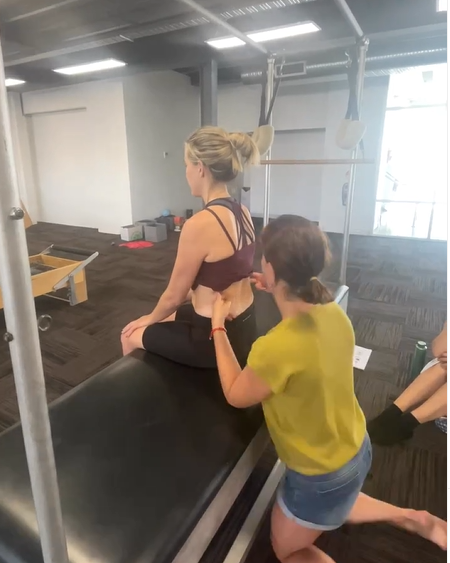You’ve heard Pilates is good for you. Maybe your PT or your Physio or your Doctor told you to work on your core more if you want less back pain? And they’re probably not wrong -embarking on a Pilates journey can be an exciting and transformative experience.
However, some clients may notice an unexpected phenomenon: feeling WORSE before feeling better.
Say what now?
Rest assured, this is not unusual, and in this blog, I’ll explore 5 reasons why this happens and how it ultimately contributes to your progress on the Pilates path.
Uncovering Hidden Imbalances:
Pilates is renowned for its focus on core strength, alignment, and balance. As you begin your Pilates practice, you're likely to uncover imbalances and weaknesses that were previously hidden or compensated for by other muscle groups. This newfound awareness can initially make you feel worse as your body adjusts to addressing these imbalances.
Awakening Dormant Muscles:
Pilates emphasises engaging deep stabilising muscles, often referred to as "the powerhouse." These muscles are responsible for maintaining stability and control throughout your body. Starting Pilates activates these dormant muscles, which can result in temporary muscle soreness and fatigue. Remember, this discomfort is a sign that your body is waking up and working on building strength from within.
Breaking Old Habits:
Our bodies tend to develop movement patterns and habits over time, which can often be inefficient or even detrimental to our overall well-being. Pilates challenges these habits by introducing new movement patterns, coordination, and alignment principles. Breaking old movement patterns can initially feel awkward and may even create a sense of regression. But trust the process, as this is a crucial step toward developing more efficient and healthier movement patterns.
Increasing Body Awareness:
Pilates places a strong emphasis on body awareness, teaching you to connect with and listen to your body more deeply. As you become more attuned to subtle movements and sensations, you may notice certain discomforts or imbalances that were previously overlooked. While it might feel frustrating, this heightened awareness is a vital aspect of Pilates and paves the way for long-term improvement.
Engaging the Mind-Body Connection:
Pilates is not just about physical strength; it also promotes a strong mind-body connection. During your initial Pilates sessions, you may find it challenging to synchronise your breath with movements, maintain focus, and stay present. It takes time to cultivate this mind-body connection, but once established, it enhances your overall movement quality and helps you achieve better results.
Although it can be disheartening to feel worse before experiencing the benefits of Pilates, it's important to recognise that this can be a common and natural part of the process. The initial discomfort and challenges serve as indicators that positive changes are happening within your body. Stay committed, be patient, and trust the Pilates method. As you continue to practise, you'll gradually notice improved strength, flexibility, posture, and an overall sense of well-being. Remember, the journey is just as important as the destination, and each step forward brings you closer to a healthier, more balanced you. Keep moving and enjoy your Pilates adventure!





